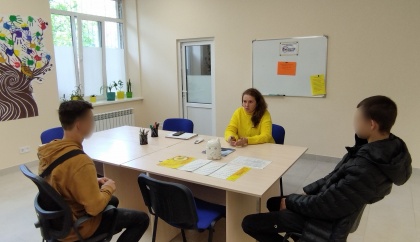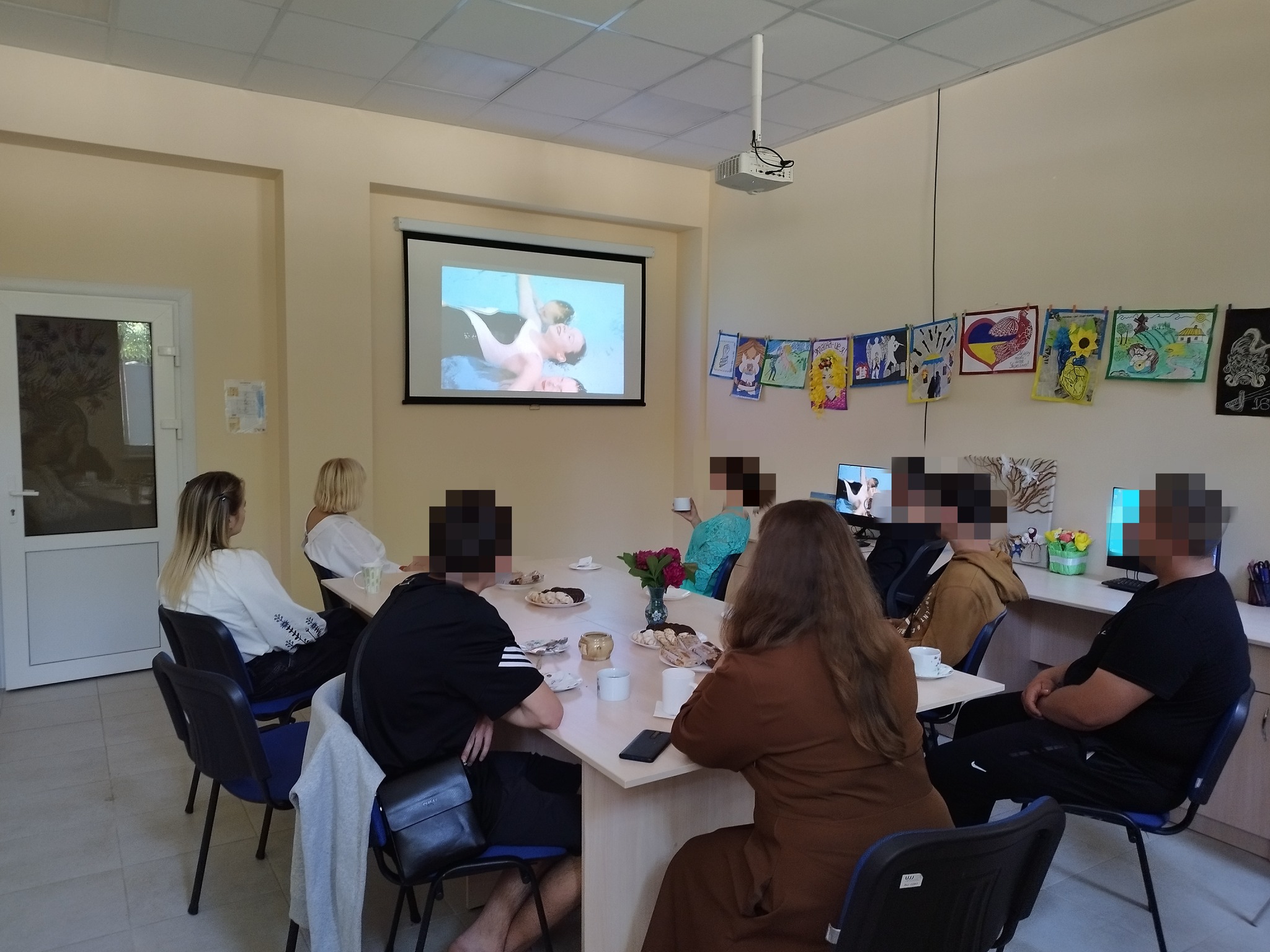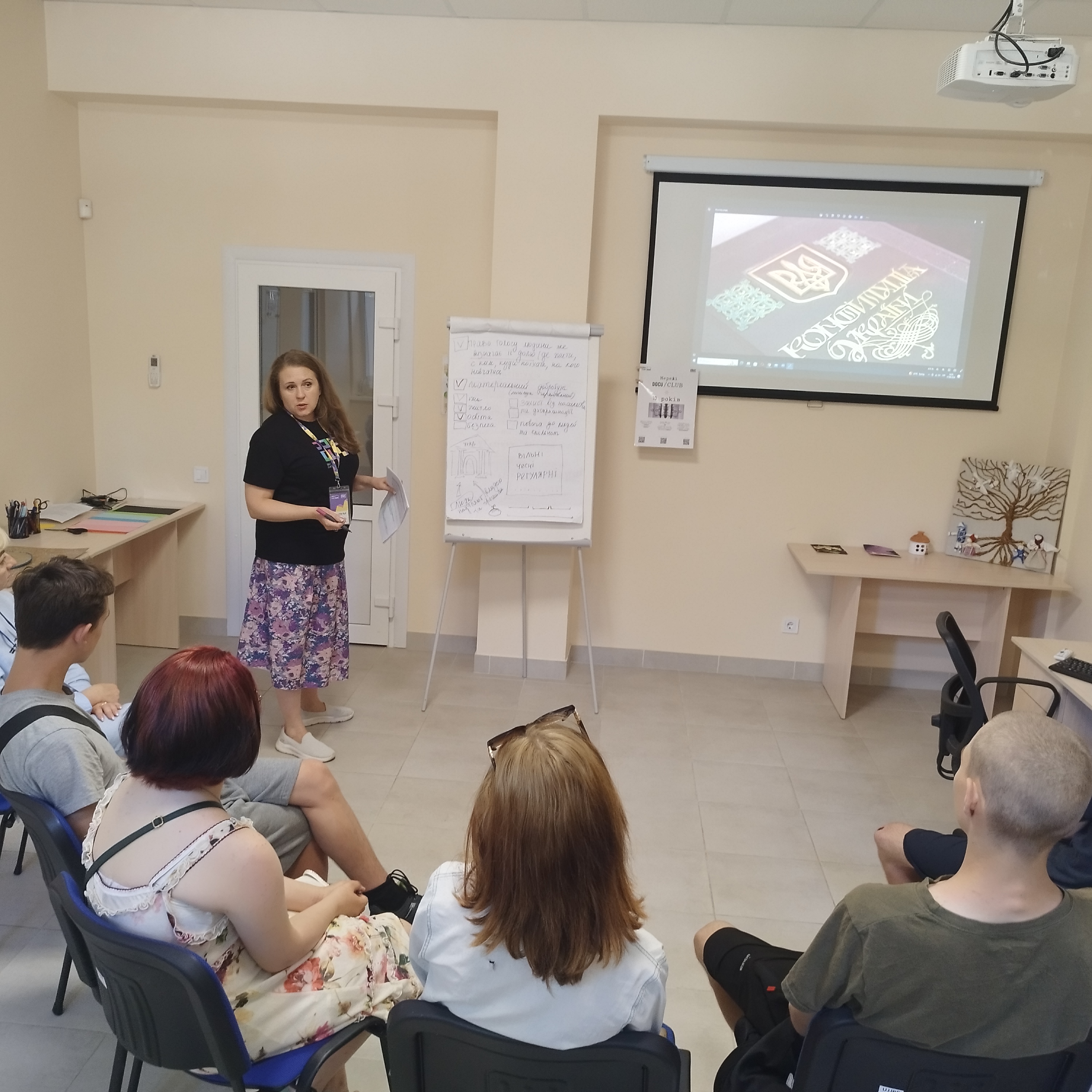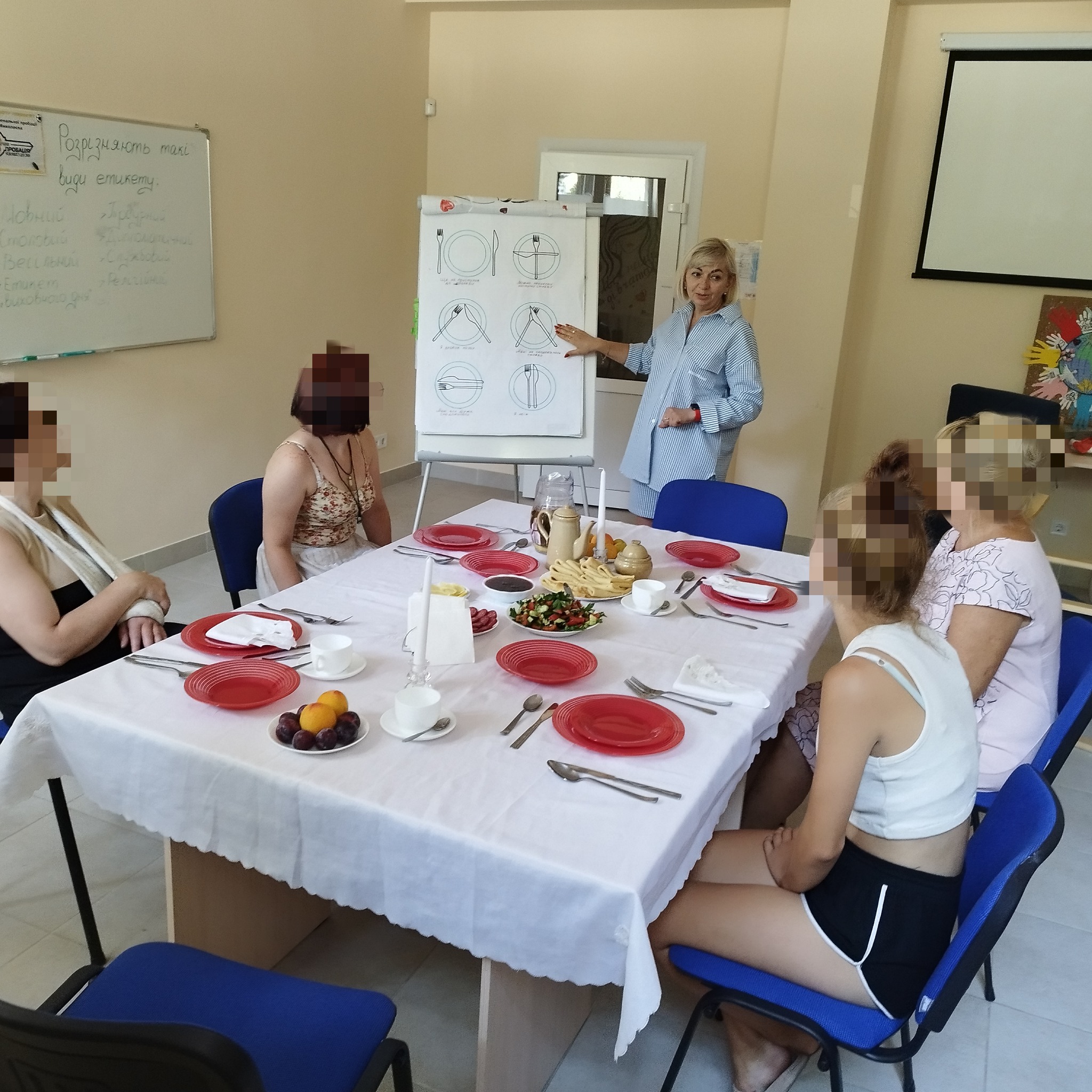
How to bring juvenile offenders back to normal life? The court grants some delinquent adolescents an opportunity to reflect on their criminal actions by releasing them from punishment with a probationary period of one to two years. At juvenile probation centers, wards get a chance to realize the reasons underlying their mistakes. The staff of the centers aim not only to prevent adolescents from committing criminal offenses in the future, but also to change the very patterns of their thinking, influence their behavior, and improve their relations with others.
Reprinted from NikVesti.
“It is impossible to fix everyone,” says Oksana Ipatieva, director of the Mykolaiv Juvenile Probation Center. “The main indicator of the success of our work is that adolescents do not commit repeated offenses during the probationary period. But we set a bigger goal for ourselves: we want to reach out to every teenager, show that they can live differently, and convince them it is absolutely possible to leave delinquent experience in the past, once and for all.”
Oksana Ipatieva is a teacher by profession. Her professional skills help her work with children. The Juvenile Probation Center in Mykolaiv has a modern facility with the necessary equipment and computers for teenagers. It even has its own kitchen, where the Center's staff conducts cooking classes to teach the wards basic life skills. For some of these children, employees of the Center are the first adults who pay attention to them.
“Sometimes our inspectors sew on buttons and repair clothes. When a child comes in with a torn jacket, we think together about what kind of patch to buy, and then sew it on together. We start with the rules of behavior at the table, and by the end of the examination period, we teach them how to write a resume and what to do at interviews,” director of the Center shares the details.

Screening of the movie Giovanni and the Water Ballet. Photo from the archive of Oksana Ipatieva
Doing such seemingly simple and mundane things together is a token of trust on the part of teenagers. Oksana says it is not easy to establish it: “At the first meetings, they are prickly like hedgehogs. During the first month of their stay with us, we conduct a risk assessment for each child to understand what to expect. We work like Sherlock Holmes, collecting bits and pieces of information from conversations and surveys of their environment. For example, if a child commits a theft at 1 or 2 AM, this is a signal to us that parents are not looking after him or her. We put these indicators together and start working to help the child.”
Oksana Ipatieva is convinced that juvenile probation can really save teenagers and prevent them from falling into the criminal abyss. During the probationary period, children communicate with specialists who do not humiliate them or treat them with superiority and disdain; here, they can talk about their problems and get support.
“We try to show them a different life. We attend exhibition openings, book presentations, and theater. The wards see people who are interested in such leisure activities. For children, this is often quite unusual, because they live in extremely difficult circumstances. But the desire to have a similar life in the future helps them refrain from committing repeated crimes,” the director says.
Looking for new effective forms of work with teenagers, Oksana Ipatieva learned about the DOCU/CLUB Network and opened a Docudays UA human rights documentary film club at the Juvenile Probation Center.
“I was excited by this idea,” she says. “For me, the film club is a completely new format of work and a fantastic tool for change. No matter how many feature films children watch, the impact of documentaries is still somewhat different and deeper. Documentaries tell non-fictional stories about real people, and this always ‘touches’ the viewer. Closeness of the camera to the protagonist and his or her frankness helps our teenagers open up, leading them to sincere conversations about their lives and actions and their consequences."

Oksana Ipatieva during the screening. Photo from the archive of Oksana Ipatieva
The film club moderator invites teenagers to watch “Bully” by American director Lee Hirsch. Among her wards are both bullies and those who were bullied at school. The film helps them communicate, feel the pain caused by bullying, and understand the suffering experienced by their peers who are victims of bullying.
The film “ABC” by German director Madli Lääne offers a great occasion to talk about the importance of education. “Our wards take the opportunity to go to school for granted, and for many of them, it is an annoying duty they strive to avoid in every way possible. The film tells the story of a 19-year-old girl who was raped as a child during the war in Liberia. She gave birth to a baby and had no chance to study. Now, as an adult, she eagerly learns to read and write, going to school together with her daughter. Teenagers see the value of access to education and the conditions in which students study in an African country. For many of them, this is the first chance to consider the opportunities provided by education,” says Oksana Ipatieva.
Films from the DOCU/CLUB Network's collection help carry out effective work on educating juvenile offenders and preventing their delinquent behavior in the future. The moderator explains: “If a child disregards the law, other people and the differences between them, documentary films help discuss this. We watch ‘Cutting Loose’ by Finlay Pretsell and Adrienne McDowall when we talk about life in prison and what to do to avoid it. The discussion of the film ‘Giovanni and the Water Ballet’ by Astrid Bussink touches children much more than any lecture on tolerance and respect for the individual. I screen ‘Starting Point’ by Michal Szczesniak when we talk about the risks of drug addiction. This topic is really painful for me. Nowadays, many teenagers use synthetic stimulants. I try to work with such children, talk to them, and motivate them to give up drugs. I invite experts, namely, young people who have already managed to overcome their addiction. They have won this great victory in their lives and want to share it. This live communication with frank questions and honest answers is really effective.”
Employees of the Mykolaiv Juvenile Probation Center are most satisfied when their work brings results, changing and improving children’s lives
“I don't show these films to intimidate children or scare them with a delinquent future, not at all. For me, the main thing is to show them stories of people who are in difficult life circumstances but are looking for a way out, finding support and striving to achieve their goals. And this is inspiring,” says Oksana Ipatieva. “Films help our teenagers find common ground with their parents and family. Once, we watched ‘My Happy Complicated Family’ by Tessa Louise Pope. One of the viewers was a boy who at the time refused to communicate with his mother, being jealous of her other children and her new husband. The situation was not easy, but the film helped to change it for the better. Lyubov Narsiya, a psychologist at our Center, also worked with the boy. After two months, he returned home, and a new life began for him. My colleagues and I are very proud of this result.”

The Center's staff teach the wards the rules of etiquette. Photo from the archive of Oksana Ipatieva
The Mykolaiv Juvenile Probation Center managed to keep its small team together after the outbreak of full-scale war. A psychologist, a teacher, and a social worker supported their clients by phone when it was not possible to hold meetings in person due to shelling. Now the center is operating as usual, carrying out its crucial daily work for the sake of these children’s future.
“It can't be any other way,” says Oksana Ipatieva. “Who else but us can now support children who made a mistake at the dawn of their lives? It is the greatest happiness when these prickly, hedgehog-like teenagers change at the end of the program. I believe that they can be helped. This is an additional motivation for us to search for effective approaches and keep going.”
Author: Olha Kyianytsia
The development of the DOCU/CLUB Network is funded by the United States Agency for International Development (USAID), the Embassy of Sweden in Ukraine, the National Endowment for Democracy (NED) and Fondation de France.
The opinions, conclusions, or recommendations are those of the authors and compilers of this publication and do not necessarily reflect the views of the governments or charitable organizations of these countries. The authors and compilers are solely responsible for the content of this publication.
All news


